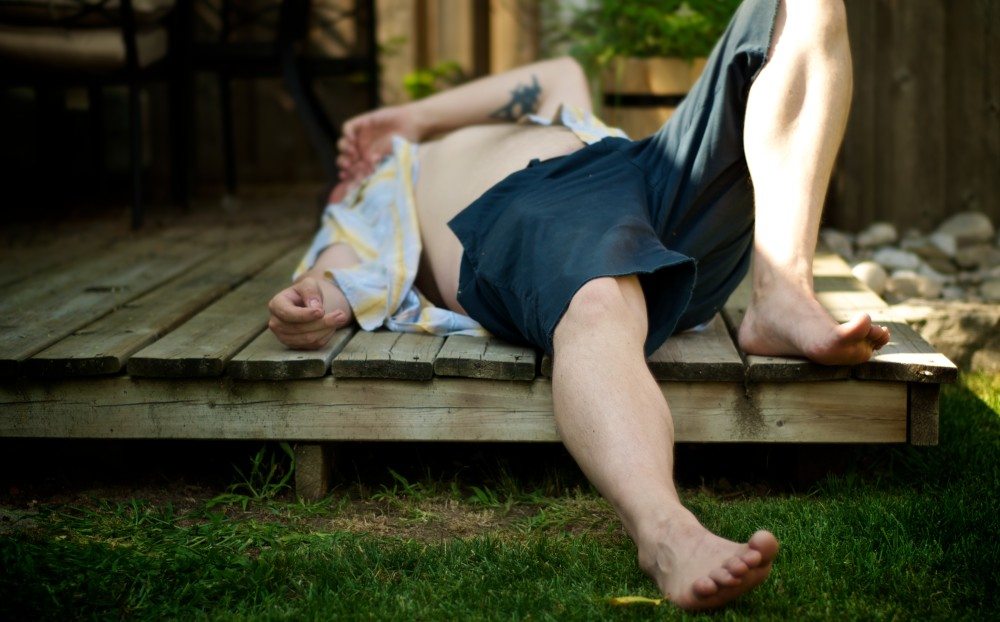
While hiking and backpacking are definitely great for your health, we all know there are precautions that you need to take in order to keep yourself healthy and safe on the trail. That being said, hiking might also be a good time to find out other things that are going on in your body, that you may have never otherwise noticed. These things may not be necessarily bad or good, but at the very least, informative. As an avid hiker, it’s important to know your body’s needs and limitations, and what your body is trying to tell you after having one of these symptoms:
Trouble Breathing or Chest Pain:
Not all of us have magic lungs, and not all of us are reliant on oxygen tubes, either. Though almost of all of us will get winded after sometime, it’s important to keep recognize how winded you really are. Do you feel like you’re wheezing? Coughing? Does your chest feel tight? If this is happening all too often while out on the trail, it could be a number of things. In some cases, it could just be the altitude or the environment, causing you to have difficulty breathing.
At other times, it could be something more serious. If it’s asthma, it’s important to have medications to help ease your hike or in case of an emergency. If it’s the first time you’ve ever felt this way without any previous diagnosis of asthma, there might be another condition that could be affecting your lungs. It could also be too much strain on your heart, and the pain can be indicative of a cardio problem. If you notice this, get it checked out immediately. There are many conditions that can cause difficulty breathing or chest pain, and it can be very dangerous if not taken care of.

Headaches:
Oh…headaches. How they can imply so many things, or nothing at all. For someone who is prone to headaches and migraines, then perhaps coming down with a headache during your hike is completely normal. For someone who is not used to experiencing headaches, then it could be signaling different things.
First of all, headaches can happen, so don’t freak out. What you must pay attention to is how severe it is, where on your head it is hurting, if you’re having other symptoms since the headache has started, and what have you been doing all day that may have caused it. If you’ve been out in the sun without a hat, that might be your first guess. A headache can be a result of dehydration, heat exhaustion, stress, physical exhaustion, or something more serious. See the other symptoms below to determine if you need help, or just an aspirin.
Lightheadedness, Dizziness, Nausea:
If you start to feel lightheaded, dizzy, or nauseous, then the first thing to do is to take a break. Your body is telling you to sit down. Hikers tend to experience these symptoms a lot, and usually it just means you need to drink some water, get hydrated, and perhaps get out of the sun.
If you start to get very nauseous and begin vomiting, you need to determine if that’s because you are dizzy, or if it’s a separate symptom. It’s one of the biggest signs of heat exhaustion, heat stroke, or dehydration, and if it has gotten to this point, you may need urgent care. Sometimes, dizziness can actually be vertigo, which can come after being high up. Determine if this might be the problem, get down to lower elevation, and see how you feel. That being said, these symptoms can also be a result of altitude sickness, which is crucial to be able to recognize.

Trouble Seeing:
Before you even get outside, it’s essential to have a good pair of protective eyewear. Of course, even the best sunglasses can’t protect you from everything. If you don’t already require prescription lenses, but you notice your vision is getting blurry while hiking, it might be time to see a doctor. If you can still see, of course.
Trouble seeing, especially outdoors, could mean that you have an astigmatism, making it hard to focus, or your vision blurry. Blurriness could also once again be a sign of dehydration, or believe it or not, also a sign of a vascular or vestibular problems. Sometimes, it’s just from a rise in blood pressure after an intense workout. Whatever it is, if it seems unusual for you, get it checked.
Numbness and Tingling:
If you get the pins and needles feeling after falling asleep with your arm behind your head, that’s normal. Sometimes, though, numbness and tingling can come as a result of an injury, and other times it’s due to a lack of vitamins in your body. Even more, it could be a result of an allergy, an insect bite, or even frostbite.
If you feel numbness and tingling more often than normal, pay attention to where you’re feeling it. Depending on where it is, it could be because of nerve damage, or a herniated disk in your back. Obviously, if you broke a bone, you’d probably be aware, but numbness and tingling could definitely be a sign of a fracture.

Certain pains, like muscle cramps or ankle swelling, can be normal while hiking. However, don’t ignore unusual symptoms while on a hike. Your body may be trying to tell you something.













